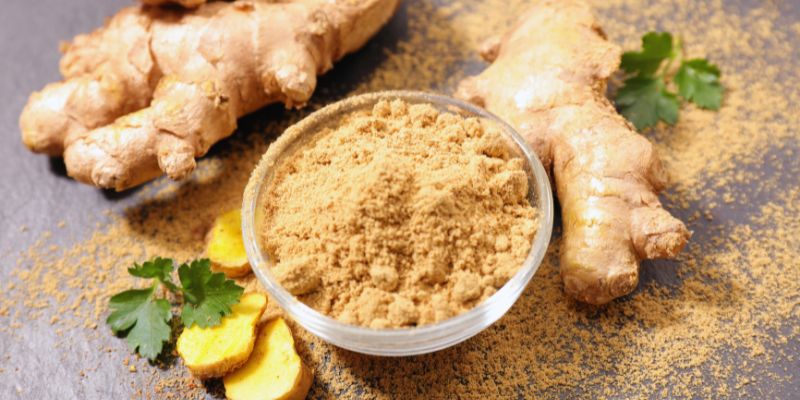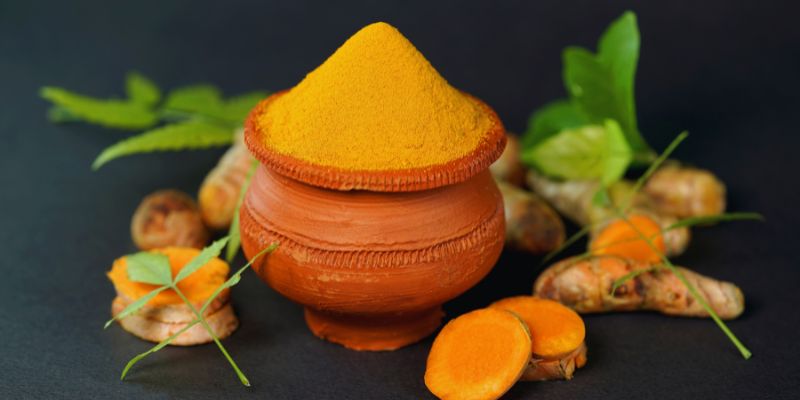Advertisement
Popular over-the-counter pain reliever acetylsalicylic acid, often called aspirin, is used extensively to lower temperature, inflammation, and pain. For different reasons, some people might want natural substitutes for acetylsalicylic acid. These might be a taste for more natural medicines, worries about long-term use, or a want to prevent negative effects.
Fortunately, various natural substitutes that can provide comparable advantages exist without depending on synthetic medications. This guide will discuss the greatest natural substitutes for acetylsalicylic acid, together with their advantages and how they help reduce pain and inflammation. Knowing these choices can help you decide how to handle general health and pain management.
Below are some of the best natural alternatives to acetylsalicylic acid to help relieve pain and inflammation.
Among the most well-known natural anti-inflammatory substitutes available is turmeric. Curcumin, an active chemical with strong anti-inflammatory effects, makes up turmeric. Research on turmeric's ability to assist in easing arthritis and other inflammatory diseases related to pain has found that it inhibits several enzymes that aggravate inflammation in the body, acting similarly to acetylsalicylic acid. Turmeric can be taken as a supplement, added to food, or consumed ground. Many also prepare turmeric tea to help with pain.
For millennia, people have turned to ginger as a naturally occurring pain reliever. Its anti-inflammatory properties are well-known, much like those of turmeric. Ginger features substances like gingerol, which lower bodily inflammation and pain. Conditions including osteoarthritis, muscle aches, and menstruation pain can greatly benefit from ginger. One might drink it raw, as tea, or as a supplement. Additionally, some people topically use ginger oil to relieve discomfort. There are several ways to easily include it in your diet.

For millennia, people have turned to natural painkillers from willow bark. It includes salicin, a molecule akin to acetylsalicylic acid. As aspirin is naturally derived from salicin, Willow bark can lower temperature, ease discomfort, and cut inflammation. It works well for disorders like back discomfort, headaches, and osteoarthritis. One can find Willow bark in capsules, powders, and teas. Benefits include being a natural substitute for aspirin that helps with pain. It could irritate the stomach, and overuse could produce adverse effects like aspirin's.

For ages, people have utilized the herb Boswellia, also called frankincense, for its anti-inflammatory qualities. It reduces the body's synthesis of pro-inflammatory enzymes, so inflammatory bowel disease, asthma, and arthritis are sometimes treated with Boswellia. It is available in supplement form to alleviate pain and inflammation. Boswellia oil is also used topically for some people's relief of discomfort. Benefits include well-toleratedness and efficacy for chronic inflammatory diseases. It could interact with some medications; thus, you should see a doctor before taking it.
Arnica is a plant often utilized in topical pain and inflammation therapies. It has been demonstrated to lessen pain, swelling, and bruising connected with surgery and injuries. Because of its anti-inflammatory action, Arnica lowers pain from disorders, including muscle strains, sprains, and osteoarthritis. Usually used topically as a cream, gel, or ointment, it can also be taken homeopathically. Benefits include low side effects and a perfect choice for localized pain and edema. Applying it on broken skin would irritate or trigger allergic reactions.
Another natural pain relief is capsaicin, which gives chili peppers a spiciness. It drains substance P, a molecule in the body that alerts the brain to pain. Capsaicin can thus help to lower inflammation and discomfort in disorders, including arthritis and muscular aches. Applied straight to the skin for pain treatment, topical creams, and gels abound in this ingredient. Generally safe when used as advised, it is good for persistent pain. Some users may find it uncomfortable when first applied, as it can provide a burning sensation.
A popular essential oil with anti-inflammatory and analgesic effects is eucalyptus oil. Along with headaches, it is frequently used to ease joint and muscular aches. Eucalyptus oil helps to lower pain and inflammation by increasing blood flow to the impacted area. Usually used topically diluted with a carrier oil or in aromatherapy, It is natural, simple to apply, and successful for localized pain. It can irritate skin if undiluted, so blending it with a carrier oil is advisable.
Another vital oil that could ease discomfort is lavender oil. Its tranquil and analgesic qualities are well-known. Lavender oil can lessen joint and muscular discomfort and headaches. Although it is sometimes used in aromatherapy, it can also be topically used following dilution with a carrier oil. Pain and suffering are connected to stress; it is mild but powerful. Some people could be sensitive to lavender; thus, a patch test is advised before use.
Magnesium is an important nutrient that is mostly responsible for controlling pain and muscle action. Low magnesium levels can aggravate headaches, muscle cramping, and persistent pain. Adding magnesium will help ease discomfort, lower muscle spasms, and encourage relaxation. Magnesium can be administered topically or orally as magnesium oil. Its benefits include being a natural cure for stress, headaches, and muscular aches. Too much magnesium could lead to diarrhea; thus, use it in moderation.
Omega-3 fatty acids in walnuts, flaxseeds, and fish oil have strong anti-inflammatory effects. They can help lower inflammation and improve symptoms of diseases like heart disease, arthritis, and chronic pain. A natural substitute for acetylsalicylic acid, omega-3s prevent the synthesis of inflammatory compounds in the body. Benefits for heart health and pain relief abound. Before use, see a doctor since omega-3 supplements could interfere with blood-thinning medications.
Several natural substitutes for acetylsalicylic acid can help lower inflammation and pain for disorders including arthritis, muscle discomfort, and headaches; turmeric, ginger, willow bark, and Boswellia provide good alleviation. Before utilizing these substitutes, though, especially if you have current medical issues or are on medication, you should take some thought to possible adverse effects and see a healthcare professional. Investigating natural remedies can be a terrific method to control pain, but always make sure safety and efficacy are guaranteed by selecting the correct solution for your requirements.
Advertisement

By Elena Davis/Jan 03, 2025

By Alison Perry/Nov 10, 2024

By Maurice Oliver/Jan 13, 2025

By Aldrich Acheson/Mar 17, 2025

By Aldrich Acheson/Dec 03, 2024

By Martina Wlison/Nov 10, 2024

By Susan Kelly/Dec 05, 2024

By Verna Wesley/Mar 17, 2025

By Juliana Daniel/Jan 21, 2025

By Isabella Moss/Nov 09, 2024

By Martina Wlison/Mar 18, 2025

By Georgia Vincent/Dec 05, 2024